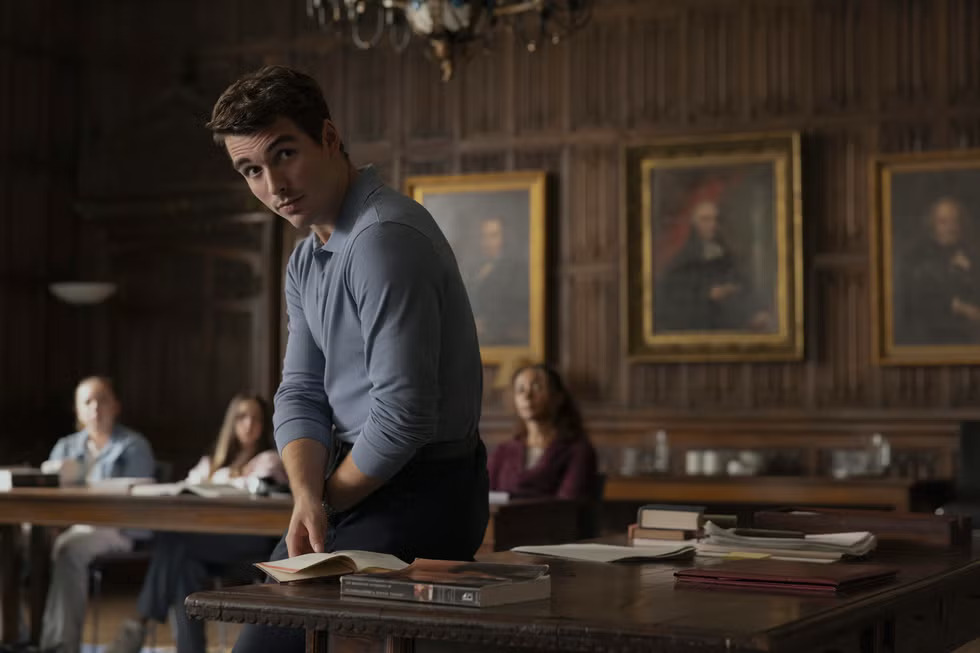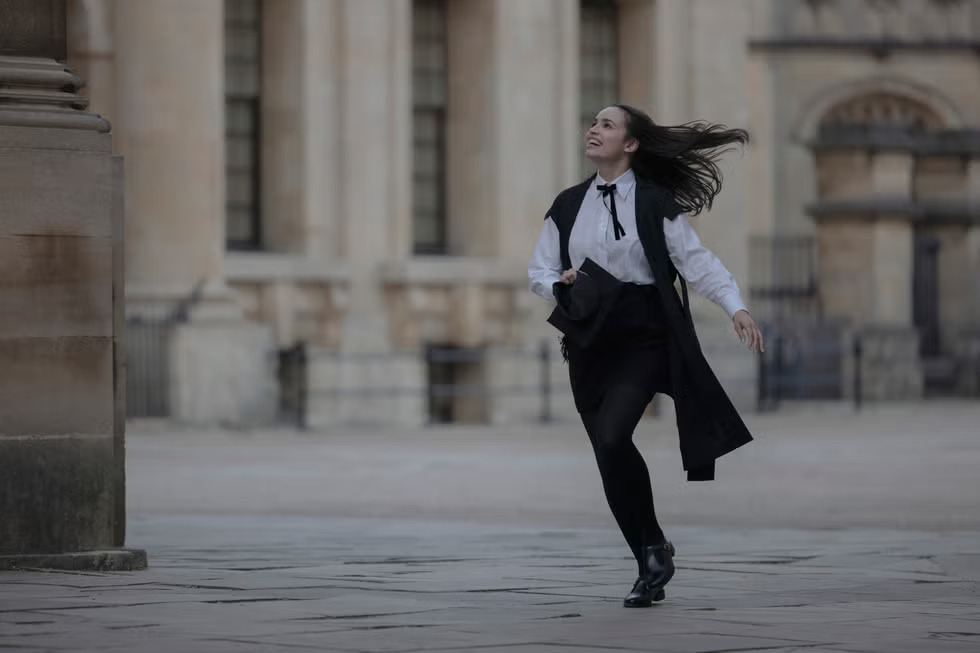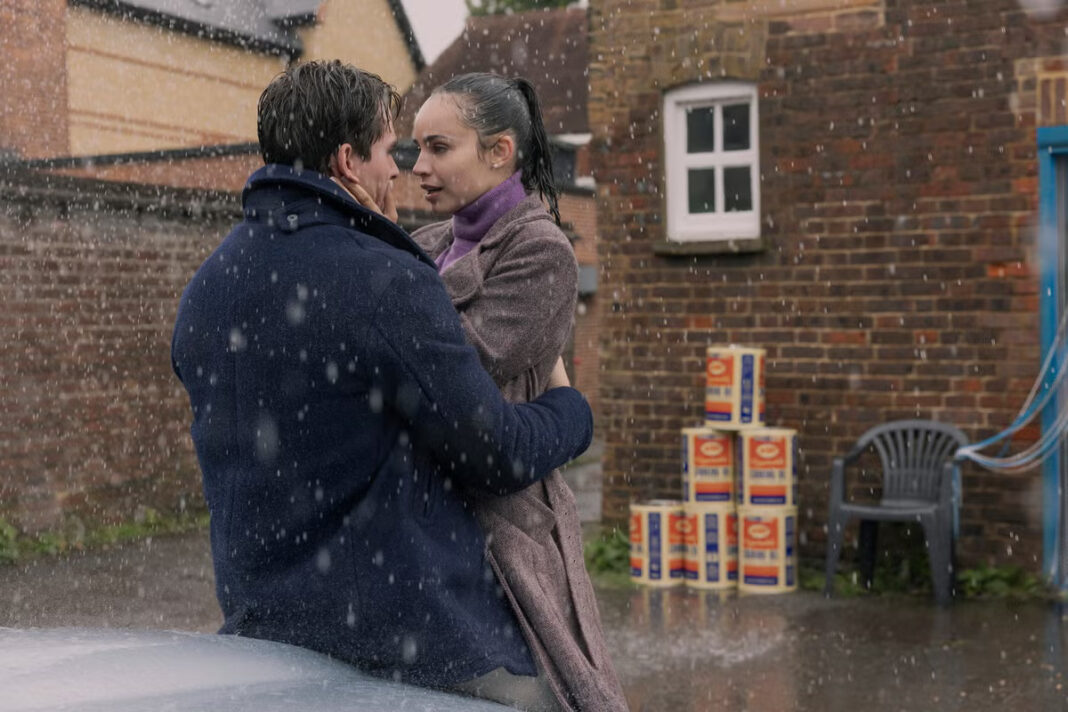School might be out for the summer, but Netflix’s upcoming romance My Oxford Year will have you yearning to head back to campus. Based on Julia Whelan’s bestselling 2018 novel, the film tells the story of Anna De La Vega, a determined young woman who leaves for Oxford University to complete a graduate program before returning to a high-powered job in New York. But when she crosses paths with Jamie Davenport—a charismatic poetry professor—everything she thought she wanted starts to shift.
Leading the film is Sofia Carson, known for her roles in Purple Hearts and The Life List, portraying Anna while also serving as executive producer. Opposite her is Corey Mylchreest, familiar to many from Queen Charlotte and The Sandman, as Jamie. The film is directed by BAFTA nominee Iain Morris (The Inbetweeners) and adapted for the screen by Allison Burnett and Melissa Osborne.
Set to stream globally on Netflix beginning August 1, My Oxford Year promises more than just a love story. It offers a journey through ambition, identity, and how love can disrupt even the most carefully laid plans.

The story’s shift from page to screen includes some thoughtful updates. While the novel featured a character named Ella who worked on a political campaign in Washington, D.C., the film reimagines her as Anna, preparing for a career in finance. Her background and family were also adapted to better reflect Carson’s own Hispanic-American heritage—an intentional move to bring more representation to the story while staying true to its original spirit.
Set against the dreamy backdrop of Oxford’s historic campus, the romance unfolds with an academic twist. Anna and Jamie begin with a touch of animosity, but an unexpected night out transforms their tension into genuine connection. What starts as flirtation turns deeper, though Jamie resists letting it get too serious—hiding something that could change everything.
The film explores themes of love through literature and language. “Anna and Jamie fall in love through poetry,” Carson has said, referencing a central quote that captures their relationship: “’Tis better to have loved and lost than never to have loved at all.” Theirs is a love that’s passionate, intellectual, and emotionally raw—set amidst the majestic charm of Oxford’s colleges and cobblestone streets.

Filmed entirely on location in the U.K., My Oxford Year showcases breathtaking scenery, from the Bodleian Library to Magdalen College and The Sheldonian Theatre. Director of photography Remi Adefarasin (Elizabeth) helped bring visual splendor to every frame.
But the setting is just one part of the film’s magic. The chemistry between Carson and Mylchreest is palpable, and according to Morris, “they were fantastic together.” The supporting cast adds depth to the world: Dougray Scott, Catherine McCormack, Harry Trevaldwyn, Esmé Kingdom, Nikhil Parmar, Poppy Gilbert, Romina Cocca, Yadier Fernández, Nia Anisah, and Hugh Coles round out the ensemble.
Getting the character of Jamie right was especially important. Mylchreest describes him as spontaneous, witty, and deeply present—someone who lives by the philosophy of “The Power of Now.” In contrast, Anna is a meticulous planner, driven by dreams and structure. But her time at Oxford—and with Jamie—teaches her to embrace the messiness of life and love.
To authentically portray their roles, both leads immersed themselves in Oxford life and literary research. Mylchreest even studied Sylvia Plath and spoke with Oxford staff to shape his performance. As for Jamie’s secret, the actor drew insight from real-life experiences shared by those who had walked a similar path.

While the film has its emotional weight, it’s also filled with relatable moments: karaoke nights, late-night food runs, academic banter, and the messy, beautiful chaos of young love. The goal, according to Morris, was to craft something classic yet grounded—something that feels like falling in love for the first time.
Ultimately, My Oxford Year is more than just a romance. It’s a reflection on identity, timing, and how love—especially the unexpected kind—can change everything. As Anna says in one of her classes,
“Poetry should not be read. It should be lived. Let it change your life”


